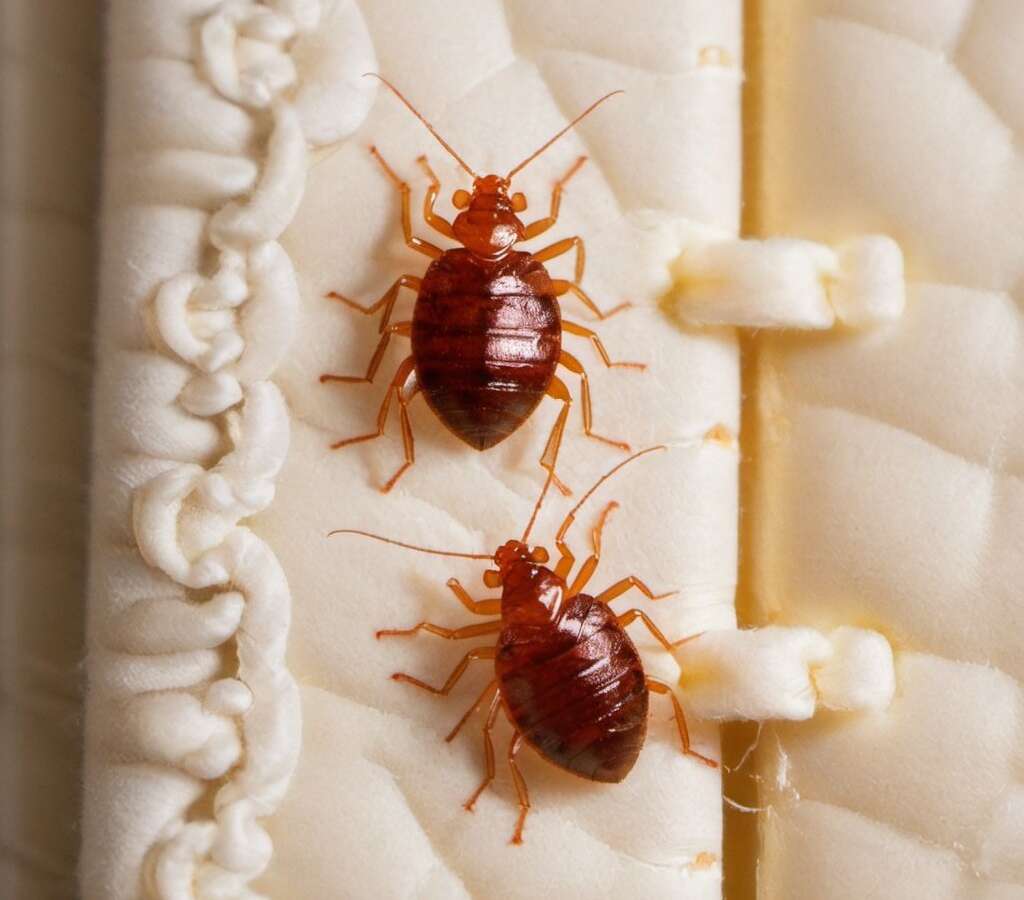Bed bugs are a menace to humans. They harbor in beds and bite at night. These pests take a blood meal from their host in order to grow. To determine an infestation, there are many factors. One of the less reliable factors is smell. But one must ask why bed bugs smell? They release a pheromone, or hormonal scent when in distress to alert the other bed bugs that something is disturbing them.
Even though bed bugs are not a colonized insect like an ant or termite, they do tend to gather in large groups. While in these large groups, these warning pheromones help the entire group to know if there is danger near. The scent is described as a musty or coriander type of smell. The bed bug is a distant relative of the stink bug. This pheromone works in much the same way.
REPRODUCTIVE SMELLS
The danger pheromone is not the only pheromone that these insects use. To understand the other pheromone, one must understand the mating technique of these pests. Bed bugs mate sexually in a process known as traumatic insemination. The females have a dark spot on their abdomen. They don’t have a genital canal like most other animals, so the male must make his own way. He uses his male organ to break through the exoskeleton of the female, hopefully at the dark spot, and injects his seed. The seed makes its way to the internal reproductive organs of the female and impregnates her.
Obviously, this is very dangerous for the female. If a male attempts to mate with an immature female, he could kill her. To stop this from happening, the young female will release a pheromone denoting that she is not of reproductive age yet. This protects her until she is developed enough to be a reproductive adult.
BLOOD HOUNDS
Of the more controversial infestation detection methods, the use of dogs ranks the highest. These dogs use their sense of scent to detect the presence of bed bugs. Unfortunately, their results are up for debate. A study from the University of Florida found a 98% success rate of bed bug dogs in a highly controlled test. Most pest companies with a bed bug dog point to this study as evidence that they work.
But other entomologists disagree. The problem is that these dogs aren’t expected to find bed bugs in a perfectly controlled laboratory, but in the real world. They also depend upon the training of the dog and the handler. Cues from the dog can be misinterpreted. Dogs can be distracted or even overwhelmed by a positive smell. There are simply a lot of factors. I, for one, do not trust a dog diagnosis without some other physical proof. But if I find spots on the mattress, or bugs in the seams, why did I need the dog to begin with?
ALLERGIC REACTIONS
Another scent emitted bu these insects can possibly lead to health issues. A study by North Carolina State University states that the feces left behind by the bed bugs leaves a large amount of histamine behind. Histamines cause rashes and respiratory problems in people. They are also found in high concentrations in bed bug feces. So high, in fact, that even months after an infestation is gone, these histamines persist.
The bed bugs are attracted to these histamines. They signify that other bed bugs have found a food source, attracting more insects to the scene. But again, these histamines are not good for humans. So it is important that, after an infestation is removed, the mattress and bed should be thoroughly cleaned.
Its important to know why bed bugs smell. If you are in need of an exterminator, feel free to Contact Us. Here at TermMax Pest Control, we are here to help.


